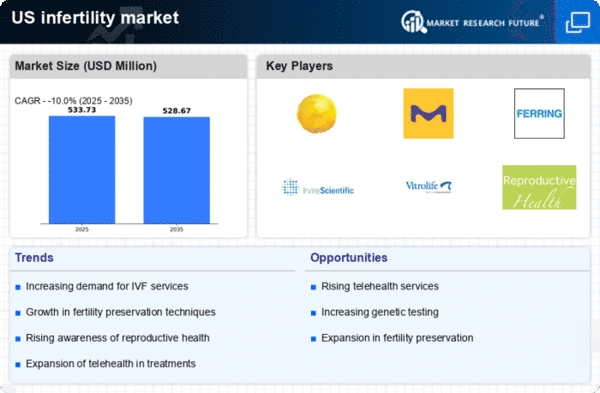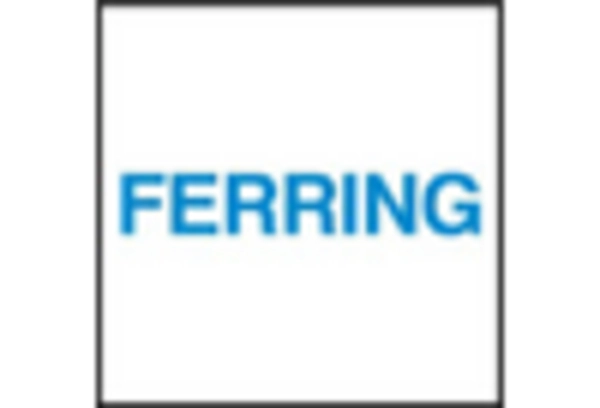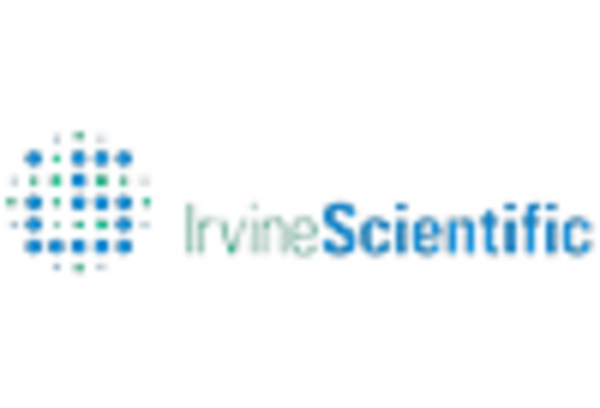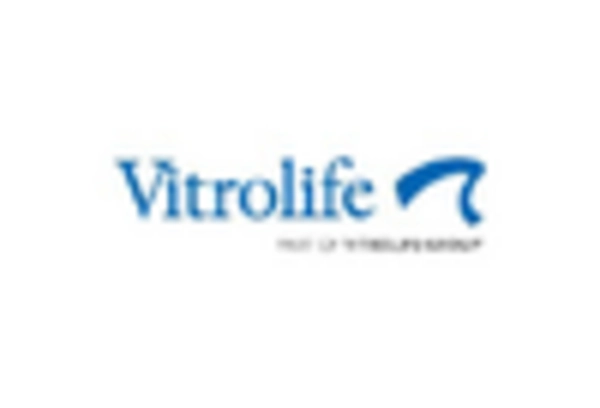Rising Infertility Rates
The infertility market is experiencing growth due to the rising rates of infertility among couples in the US. Recent data indicates that approximately 10-15% of couples face difficulties in conceiving, which translates to millions of individuals seeking assistance. Factors contributing to this trend include delayed childbearing, lifestyle choices, and environmental influences. As more couples confront infertility, the demand for fertility treatments and services is likely to increase. This growing need for solutions is propelling the infertility market forward, as healthcare providers and fertility clinics expand their offerings to accommodate a larger patient base. The market is projected to reach a valuation of over $20 billion by 2026, highlighting the urgency and importance of addressing infertility issues in the US.
Advancements in Fertility Treatments
Innovations in fertility treatments are significantly impacting the infertility market. Techniques such as in vitro fertilization (IVF), intracytoplasmic sperm injection (ICSI), and preimplantation genetic testing (PGT) have revolutionized the way infertility is treated. The introduction of new technologies and methodologies has improved success rates, making these treatments more accessible and effective. For instance, the success rate of IVF has increased to around 40% for women under 35, which encourages more couples to seek help. As these advancements continue to evolve, they are likely to attract a broader demographic, further driving the growth of the infertility market. The increasing availability of advanced reproductive technologies is expected to enhance patient outcomes and satisfaction, thereby solidifying the market's expansion.
Increased Investment in Fertility Research
Investment in fertility research is playing a crucial role in shaping the infertility market. With a growing recognition of infertility as a public health issue, both public and private sectors are allocating more resources towards research and development. This influx of funding is facilitating the exploration of new treatments, understanding the underlying causes of infertility, and improving existing technologies. For instance, the National Institutes of Health (NIH) has increased its funding for reproductive health research, which is expected to yield innovative solutions in the coming years. As research continues to advance, it is likely to lead to breakthroughs that enhance treatment efficacy and patient care, thereby propelling the infertility market forward.
Changing Demographics and Lifestyle Factors
Changing demographics and lifestyle factors are significantly influencing the infertility market. As societal norms evolve, individuals are increasingly prioritizing education and career advancement, often leading to delayed family planning. Additionally, lifestyle choices such as diet, exercise, and stress management are becoming more recognized as critical factors affecting fertility. The prevalence of conditions such as obesity and polycystic ovary syndrome (PCOS) is also contributing to infertility rates. As awareness of these issues grows, there is a corresponding increase in demand for fertility services and education. This shift in demographics and lifestyle is likely to continue shaping the infertility market, as healthcare providers adapt to meet the needs of a changing population.
Growing Acceptance of Fertility Preservation
The growing acceptance of fertility preservation techniques is emerging as a key driver in the infertility market. As individuals become more aware of their reproductive options, particularly in the context of career planning and health concerns, the demand for egg and sperm freezing services is on the rise. This trend is particularly evident among women who wish to delay childbirth for personal or professional reasons. According to recent statistics, the number of women opting for egg freezing has increased by over 30% in the past few years. This shift in societal attitudes towards fertility preservation is likely to contribute to the expansion of the infertility market, as more individuals seek to safeguard their reproductive health for the future.
















